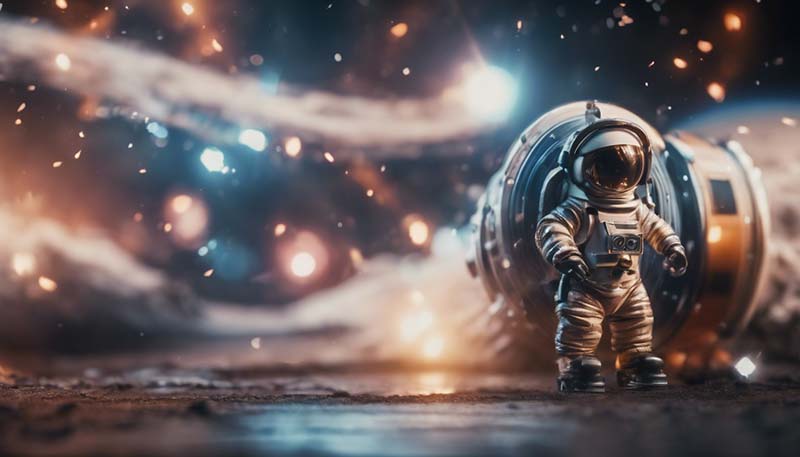The Risks of Space Travel: A Look at the Dangers of Space Exploration
### The Risks of Space Travel: A Look at the Dangers of Space Exploration
#### Introduction
Space exploration has always been a thrilling endeavor, pushing the boundaries of human knowledge and technology. However, with the excitement comes an inherent set of significant risks. This article delves into the various dangers associated with space travel, from the physical effects of space on the human body to the psychological challenges astronauts face.
#### The Physical Hazards of Space
1. **Radiation Exposure:**
- Earth's atmosphere and magnetic field protect us from most of the harmful radiation from the sun and cosmic rays. In space, this protection is absent, leading to a higher risk of exposure to ionizing radiation, which can increase the risk of cancer and other health issues.
2. **Microgravity:**
- The lack of gravity in space can lead to muscle atrophy and bone density loss, as well as cardiovascular deconditioning. These effects can pose serious health risks to astronauts during and after their missions.
Advertisement
3. **Space Debris:**
- Orbiting at high velocities, even small particles of space debris can cause significant damage to spacecraft and pose a threat to the lives of astronauts.
4. **Temperature Extremes:**
- Space is a harsh environment with extreme temperatures, ranging from scorching heat when in direct sunlight to freezing cold in the shade. Protecting against these extremes is crucial for the safety of astronauts and the integrity of spacecraft.
5. **Atmospheric Re-entry:**
- Returning to Earth involves withstanding the intense heat generated during re-entry, which requires specialized spacecraft design and materials.
#### Psychological Risks
1. **Isolation and Confinement:**
- Prolonged stays in space can lead to feelings of isolation and confinement, which can impact mental health and interpersonal relationships among crew members.
2. **Psychological Stress:**
- The high-stress environment of space travel, combined with the pressure of performing critical tasks, can take a toll on an astronaut's psychological well-being.
3. **Effects of Isolation on Family and Relationships:**
- Astronauts must also contend with the strain that their absence places on their families and personal relationships back on Earth.
#### Technical Risks and Challenges
1. **System Failures:**
- The complexity of spacecraft systems means that there is always a risk of failure, which could be catastrophic if not managed correctly.
2. **Life Support Systems:**
- The reliability of life support systems is paramount. Any failure in these systems can quickly become life-threatening.
3. **Medical Emergencies:**
- Responding to medical emergencies in space is complicated by the lack of immediate access to medical facilities and the challenge of performing medical procedures in microgravity.
#### The Human Factor
1. **Training and Readiness:**
- Astronauts undergo rigorous training to prepare for the challenges of space travel, but unforeseen events can still occur.
2. **Adaptation to New Environments:**
- Adaptation to the unique environment of space, including the ability to perform tasks in microgravity, is a significant aspect of astronaut training.
3. **Cultural Differences and Teamwork:**
- Astronauts often work in multinational crews, requiring them to navigate cultural differences and maintain effective teamwork.

#### The Future of Space Safety
1. **Advancements in Technology:**
- Ongoing technological advancements aim to mitigate many of the risks associated with space travel.
2. **Research and Development:**
- Continued research is essential to understand the long-term effects of space travel on the human body and to develop countermeasures.
3. **Regulation and Policy:**
- As commercial space travel becomes more common, there will be a need for international regulations and policies to ensure safety standards are met.
#### Conclusion
Space travel, while an incredible feat of human achievement, is not without its risks. Understanding and addressing these risks is essential for the continued success and safety of space exploration.
LEAVE A REPLY
Your email address will not be published. Required fields are marked *